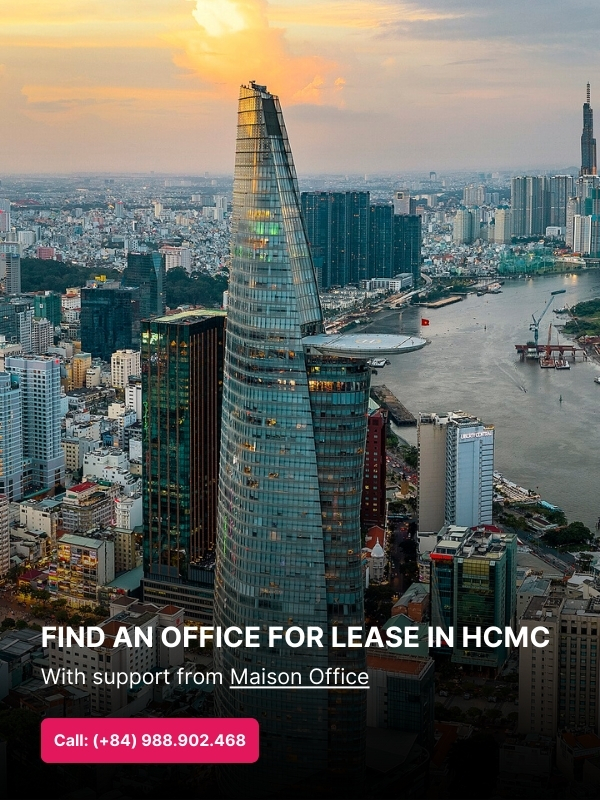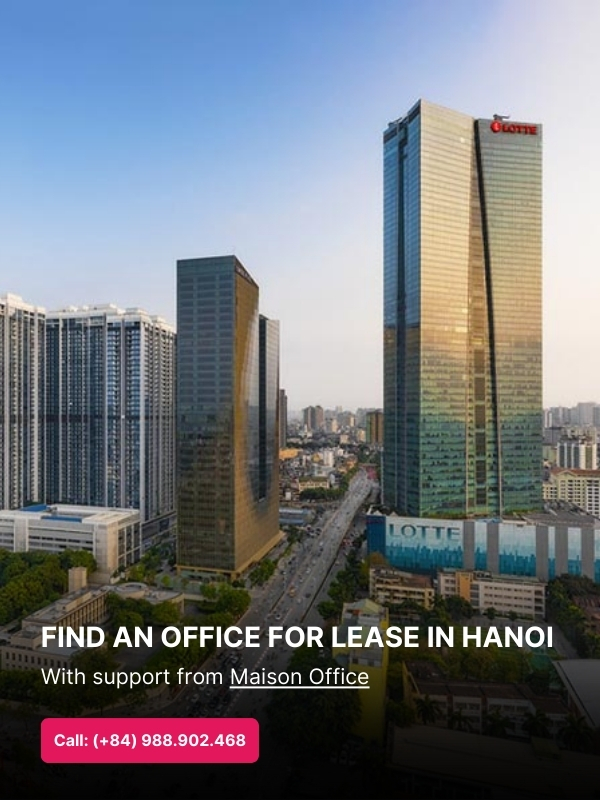Business Culture in Vietnam: Guide for Foreigners

Vietnam is rapidly emerging as a strategic destination for global business, attracting professionals from around the world. Understanding its unique business culture is essential for building trust, closing deals, and thriving in local markets. This 2026 guide offers key insights to help foreigners navigate Vietnam’s corporate landscape with confidence and cultural awareness.
For a smooth market entry, understanding Vietnam’s legal framework for foreign investment is just as important as cultural fluency.
 |
 |
Table of Contents
1. Core values of Vietnam’s business culture
Vietnam’s business culture is shaped by a deep-rooted sense of collectivism, respect for hierarchy, and a harmonious approach to communication. Understanding these core values is essential for building trust and achieving long-term success when working with Vietnamese partners or managing a local team.
Respect for hierarchy and seniority
Vietnamese businesses typically follow a top-down decision-making structure, where senior leaders hold the authority. Recognizing who the decision-maker is – and showing them proper respect – is essential for successful negotiations.
Using correct titles and honorifics in meetings reflects cultural awareness, and addressing individuals by their title and first name is standard practice. Age and experience also command respect; even in international companies, older professionals often carry influence beyond their formal role.
Junior employees may hesitate to voice differing opinions in group settings, favoring indirect communication. Foreign managers should be mindful of this to avoid misreading silence as agreement.
For businesses navigating decision authority,Types of Companies in Vietnam helps clarify how ownership and management roles are structured under local law.

Group harmony and consensus-driven culture
Vietnamese workplaces prioritize harmony and collective decision-making over individual assertiveness. Open disagreement is often avoided to maintain respect and avoid causing loss of face.
Rather than voicing immediate opinions, team members tend to align with the group, especially in the presence of senior leaders. Final decisions may be shaped through informal discussions after meetings.
This consensus – driven culture fosters internal stability and long-term collaboration – key factors for successful team integration in Vietnam.

Relationship-oriented business practices (Guanxi in Vietnam)
In Vietnam, business is deeply relationship – driven. Trust and rapport often matter as much as – if not more than – contracts or credentials. Establishing personal connections is seen as a prerequisite for long-term cooperation.
Initial meetings may focus more on building familiarity than closing deals. Informal gatherings over meals or coffee play a key role in developing mutual understanding and credibility.
For foreign companies, investing time in relationship-building – through consistent communication and cultural sensitivity – can significantly improve negotiation outcomes and business success.
For foreign investors, FDI Company in Vietnam explores how to balance formal procedures with relationship-building.
The role of trust and long-term thinking
Trust is a cornerstone of doing business in Vietnam. Local partners often prioritize long-term relationships over short-term gains, viewing trust as something earned through consistency and mutual respect.
Quick wins or aggressive negotiation tactics may backfire. Instead, patience, reliability, and honoring commitments are key to building credibility in the Vietnamese market.
Foreign companies that demonstrate long-term intent – such as investing in people, staying transparent, and respecting local practices – are more likely to gain loyalty and secure sustainable growth.
2. Business etiquette in Vietnam
Understanding business etiquette in Vietnam is essential for building positive impressions and successful partnerships. From greetings and meeting behavior to dress code and gift-giving, etiquette reflects the values of respect, humility, and professionalism embedded in Vietnamese culture.

First impressions: Greetings and business cards
First impressions matter in Vietnamese business culture, where respect and courtesy set the tone for long-term cooperation.
| Aspect | Recommended practice | Notes |
| Greeting style | Gentle handshake + slight nod or bow | Especially with senior professionals; maintain eye contact respectfully |
| Addressing others | Use titles with first names (e.g., Mr. An, Ms. Lan) | Avoid using only the given name without honorifics |
| Business card exchange | Use both hands when giving and receiving cards | Always look at the card before putting it away |
| Card format | Print in both English and Vietnamese | Bilingual cards show professionalism and cultural respect |
| Body language | Keep posture composed, gestures moderate | Avoid overly assertive handshakes or dominant body language |
Proper dress code for business settings
In Vietnam’s business environment, dressing appropriately reflects professionalism and respect. Appearance often influences first impressions, especially in formal meetings or partnership discussions.
- For men: Men typically wear collared shirts with trousers in daily settings. For formal meetings or executive roles, a full suit and tie—especially in darker colors—is preferred.
- For women: Professional dresses, blouses with skirts or tailored pantsuits are suitable. Outfits should be modest, well-fitted, and conservative in tone, especially when meeting senior stakeholders.
- Climate-conscious choices: Given Vietnam’s tropical climate, lightweight, breathable fabrics are common—especially in the south. However, formality is still expected in high-level meetings, regardless of temperature.
- Grooming and accessories: Clean grooming, polished shoes, and subtle accessories are standard. Avoid flashy or overly casual styles, which may be seen as unprofessional in traditional business settings.

Gift-giving etiquette and taboos
Gift-giving in Vietnam is a thoughtful gesture that can help build rapport and express appreciation in business relationships. However, it should be approached with cultural sensitivity and awareness of local norms.

| Aspect | Guideline | Notes / Taboos |
| Occasions | First meetings, Tet (Lunar New Year), post-deal celebrations | Gifts should not appear transactional or overly strategic |
| Gift types | Local specialties, branded stationery, small cultural souvenirs | Avoid expensive or intimate items |
| Presentation | Use both hands when giving; red/gold wrapping preferred | Don’t expect the recipient to open the gift immediately |
| Cultural taboos | Avoid clocks, handkerchiefs, sharp objects, sets of 4 | These items are associated with bad luck or farewells in Vietnamese culture |
| Preferred approach | Thoughtful, modest, and respectful | Focus on sincerity, not monetary value |
Punctuality and respect for schedules
While Vietnamese business culture tends to be flexible, punctuality is still a sign of professionalism and respect—especially in formal or first-time meetings.
- Being on time matters: Arriving 5–10 minutes early is ideal. It shows seriousness and helps create a positive impression, particularly when meeting senior leaders or foreign clients.
- Flexibility in scheduling: Meetings may start later than planned, especially in government or state-owned enterprises. However, foreign partners are still expected to arrive on time and remain patient with delays.
- Confirming appointments: It’s common practice to reconfirm meetings a day in advance. Using email or messaging apps like Zalo is appreciated and shows your commitment to the schedule.
- Respecting business hours: Office hours typically run from 8:00–17:00, Monday to Friday. Avoid scheduling important meetings during lunch breaks (12:00–13:30), or close to holidays without early notice.

3. Business communication in Vietnam
Effective business communication in Vietnam requires more than language fluency – it demands cultural sensitivity, awareness of hierarchy, and the ability to interpret subtle cues. Understanding these elements helps foreign professionals build trust and avoid miscommunication.
Indirect communication style
Vietnamese business culture favors an indirect communication style, where clarity is often achieved through subtlety rather than confrontation.
| Characteristic | Description | Practical tip |
| Implied messaging | Meaning conveyed through non-verbal cues and context | Pay attention to body language and tone |
| Polite affirmations | “Yes” may mean acknowledgment, not full agreement | Ask clarifying questions gently |
| Avoiding confrontation | Disagreements are handled discreetly to maintain harmony and avoid embarrassment | Avoid direct criticism in group settings |
| Subtle disagreement | Hesitation or vague responses can indicate concern or resistance | Follow up privately for clearer understanding |
| Relationship – driven clarity | Better understanding develops over time with trust and familiarity | Build rapport to interpret indirect messages more effectively |
The importance of “Saving face”
“Saving face” is a fundamental concept in Vietnamese culture that deeply influences business communication and behavior. It refers to the preservation of dignity, respect, and social harmony for both individuals and groups.
- Avoiding public embarrassment: Criticizing someone in front of others, even constructively, can be seen as disrespectful. Disagreements are best handled in private or communicated diplomatically.
- Indirect feedback is preferred: Rather than direct rejection or confrontation, Vietnamese professionals may use soft language, passive expressions, or silence to express concern or disagreement.
- Praise in public, critique in private: Compliments and recognition are welcomed in meetings or team settings. However, feedback—especially for mistakes—should be given discreetly to protect professional pride.
- Relationship preservation over winning arguments: In Vietnam, maintaining long-term harmony is often more important than being right. This value shapes negotiation, conflict resolution, and leadership communication.
Non-verbal cues and body language
Non-verbal communication plays a significant role in Vietnamese business culture. Body language, gestures, and even silence often convey more than spoken words.
| Element | Meaning & business implication | Tips for foreign professionals |
| Smile | Politeness, social harmony, or soft disagreement – not always agreement | Don’t assume a smile means approval; follow up to confirm understanding |
| Eye contact | Moderate eye contact shows respect; intense gaze can feel aggressive | Maintain eye contact, but avoid staring |
| Hand gestures | Pointing with index finger is impolite | Use open-hand gestures when indicating or presenting |
| Posture | Calm and respectful demeanor is valued | Sit upright, avoid slouching or crossing arms during formal meetings |
| Silence | Indicates thoughtfulness, hesitation, or deference to hierarchy | Allow pauses in conversation; don’t rush to speak or fill silence |
English use in business vs. Vietnamese preferences
English is increasingly used in Vietnam’s corporate environment, especially in multinational firms and client-facing roles. However, sensitivity to local language preferences remains important.
- English in urban business hubs: In Ho Chi Minh City and Hanoi, many professionals in finance, tech, and real estate are fluent in English—particularly at mid to senior levels.
- Switching to Vietnamese for comfort: Some clients or team members may revert to Vietnamese for clarity, especially in technical or emotional discussions.
- Professional documents: Proposals, contracts, and email communication are often bilingual to avoid misunderstandings.
- Meetings and presentations: Providing visual aids or slides in both languages is considered thoughtful and inclusive.
Learn more: Vietnam Company Registration Guide
4. Work culture and management style
Vietnam’s work culture blends traditional values with modern business practices. While younger professionals embrace global trends, core cultural principles – like respect for authority and collective responsibility – continue to shape the workplace environment.
Typical working hours and professional attitudes
Vietnamese professionals are known for their dedication, adaptability, and strong sense of responsibility in the workplace. Understanding local work habits and expectations can help foreign businesses foster more effective teams.
| Aspect | Typical practice | Notes / Insights |
| Standard working hours | 8:00 AM – 5:00 PM, Monday to Friday | 90-minute lunch break (12:00 – 1:30 PM); alternate Saturdays off in some firms |
| Overtime culture | Common in project-driven environments | Employees may hesitate to decline extra work; managers should monitor for burnout |
| Punctuality | Expected in external meetings and professional settings | Internal flexibility exists, but chronic lateness is viewed as unprofessional |
| Responsibility & loyalty | Employees value job security and take pride in fulfilling duties | Fair treatment and clear communication build trust and long-term commitment |
| Adaptability | Young professionals are agile, tech-savvy, and quick to learn | Motivated by clear goals, respectful leadership, and recognition |
Decision-making hierarchy in local companies
Vietnamese businesses typically operate under a clear and centralized decision-making hierarchy. Understanding how decisions are made—and who makes them—is key to navigating partnerships and managing teams effectively.
- Top-down authority structure: Decisions are often made at the top level (Director, General Manager, CEO), especially in family-run businesses or traditional companies. Middle managers serve more as implementers than decision-makers.
- Respect for seniority: Seniority – both in age and title – plays a critical role. Even when junior staff have valuable input, they may hesitate to share ideas unless invited by a superior.
- Consensus within leadership: In larger organizations, decisions may still require informal consensus among senior stakeholders, especially for major investments or strategic moves.
- Indirect communication in decision flow: Instructions often flow through layers of hierarchy. Feedback from junior levels may be filtered or softened before reaching senior leadership.
- Implication for foreign partners: To move discussions forward efficiently, foreign businesses should identify and engage directly with key decision-makers early in the process. Demonstrating respect for hierarchy – through titles, formal introductions, and proper meeting protocol – is critical.
For businesses navigating authority and governance, Types of Companies in Vietnam explains how ownership and control are structured legally.
How loyalty and stability are valued
Loyalty and long-term commitment are core values in Vietnamese work culture – especially within traditional companies and family-owned businesses.
- Employee loyalty is a sign of trust: Staying with the same company for many years is often viewed as a mark of reliability and respect. Long-serving employees are respected and may be informally consulted on key decisions, even if not in senior roles.
- Stability over rapid change: Vietnamese employees often prefer gradual changes and predictable structures. Frequent organizational shifts or unclear leadership directions can create discomfort or mistrust.
- Employer expectations: Companies expect commitment and dedication, especially after probation. Employees who remain during difficult periods are often rewarded with internal promotion or long-term incentives.
- Retention through relationship-building: Managers who take time to understand their team—both professionally and personally—often enjoy higher staff retention. In Vietnam, trust and harmony within a team are as important as salary and benefits.
Businesses looking to hire foreign staff can review Vietnam Labor Law for Foreigners for compliance and best practices.
Gender roles and generational shifts in the workplace
- Women in leadership roles are on the rise: In sectors like finance, real estate, logistics, and education, more Vietnamese women are taking on mid- and senior-level positions—especially in Ho Chi Minh City and Hanoi.
- Younger generations value equality and openness: Millennials and Gen Z employees expect fair treatment regardless of gender or age. They are more vocal, tech-savvy, and prefer transparent communication.
- Traditional vs. modern expectations: Older professionals often prioritize stability, job titles, and formal protocols, while younger staff seek purpose, mentorship, and work-life balance.
- Leadership styles are evolving: Modern Vietnamese managers tend to blend hierarchical respect with people-first leadership—balancing authority and empathy.
- Urban workplaces lead the change: Gender inclusivity and generational openness are more prominent in major cities, while traditional expectations remain stronger in smaller provinces.
5. Dos and don’ts for foreign professionals
| Category | Dos | Don’ts |
| Common mistakes to avoid |
|
|
| Building business relationships |
|
|
| Negotiations and meetings |
|
|
| Cultural adaptation for long-term success |
|
|
Navigating Vietnam’s business culture goes beyond etiquette — it’s about aligning with deeply rooted values and communication styles. By embracing these cultural nuances, foreign professionals can operate more effectively. Success in Vietnam isn’t just about what you know, but how well you adapt.
Once you’ve understood Vietnam’s business culture, the next step is finding the right place to work and grow. Maison Office, your trusted commercial leasing agent in Vietnam, offers tailored office for lease in Ho Chi Minh City and office for lease in Hanoi to support your long-term business success.




